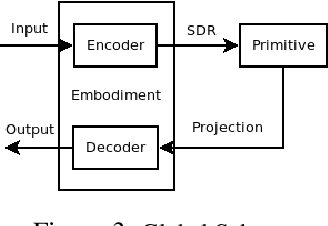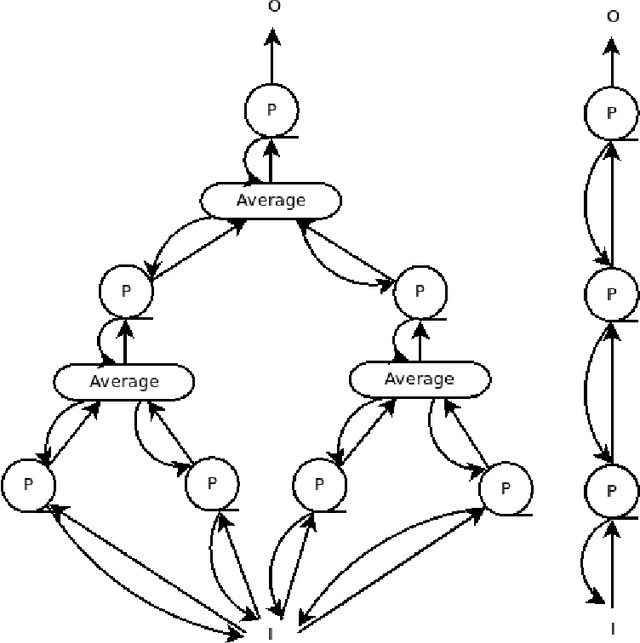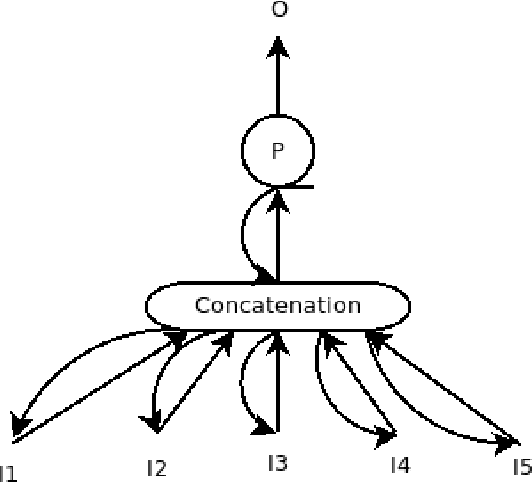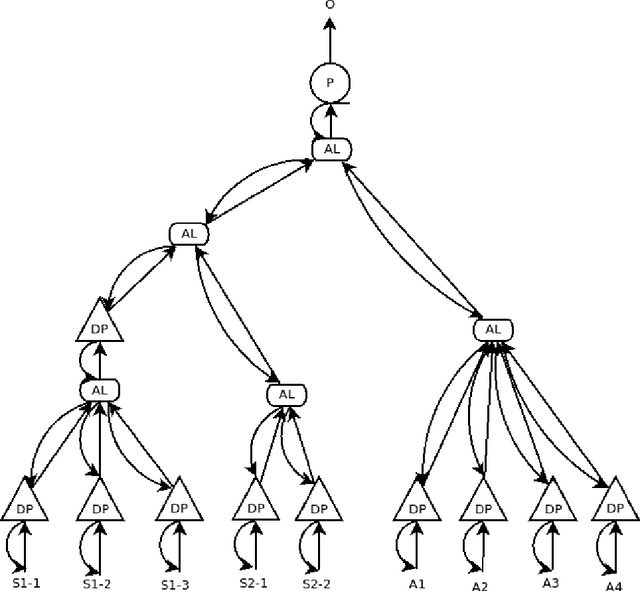Enric Guinovart
Beating Transformers using Synthetic Cognition
Apr 10, 2025
Abstract:The road to Artificial General Intelligence goes through the generation of episodic reactive behaviors, where the Transformer architecture has been proven to be the state-of-the-art. However, they still fail to develop reasoning. Recently, a novel approach for developing cognitive architectures, called Synthetic Cognition, has been proposed and implemented to develop instantaneous reactive behavior. In this study, we aim to explore the use of Synthetic Cognition to develop episodic reactive behaviors. We propose a mechanism to deal with sequences for the recent implementation of Synthetic Cognition, and test it against DNA foundation models in DNA sequence classification tasks. In our experiments, our proposal clearly outperforms the DNA foundation models, obtaining the best score on more benchmark tasks than the alternatives. Thus, we achieve two goals: expanding Synthetic Cognition to deal with sequences, and beating the Transformer architecture for sequence classification.
The Function-Representation Model of Computation
Oct 11, 2024Abstract:Cognitive Architectures are the forefront of our research into developing an artificial cognition. However, they approach the problem from a separated memory and program model of computation. This model of computation poses a fundamental problem: the knowledge retrieval heuristic. In this paper we propose to solve this problem by using a new model of computation, one where the memory and the program are united: the Function-Representation. We propose a novel model of computation based on implementing and using these Function-Representations, and we explore its potential through mathematical definitions and proofs. We also talk about different ways to organise multiple Function-Representations, and explore the kind of functions that these Function-Representations can implement. Finally, we also explore the limitations of our proposal.
The Function-Representation Unification Framework
Oct 10, 2024Abstract:Cognitive Architectures are the forefront of our research into developing an artificial cognition. However, they approach the problem from a separated memory and program model of computation. This model of computation poses a fundamental problem: the knowledge retrieval heuristic. In this paper we propose to solve this problem by using a new model of computation, one where the memory and the program are united: the Function-Representation. We propose a whole framework about how to implement and use these Function-Representations, and we explore their potential through mathematical definitions and proofs. We also talk about different ways to organise multiple Function-Representations, and explore the kind of functions that these Function-Representations can implement. Finally, we also explore the limitations of our proposal.
Knowledge Discovery using Unsupervised Cognition
Sep 30, 2024

Abstract:Knowledge discovery is key to understand and interpret a dataset, as well as to find the underlying relationships between its components. Unsupervised Cognition is a novel unsupervised learning algorithm that focus on modelling the learned data. This paper presents three techniques to perform knowledge discovery over an already trained Unsupervised Cognition model. Specifically, we present a technique for pattern mining, a technique for feature selection based on the previous pattern mining technique, and a technique for dimensionality reduction based on the previous feature selection technique. The final goal is to distinguish between relevant and irrelevant features and use them to build a model from which to extract meaningful patterns. We evaluated our proposals with empirical experiments and found that they overcome the state-of-the-art in knowledge discovery.
Unsupervised Cognition
Sep 27, 2024



Abstract:Unsupervised learning methods have a soft inspiration in cognition models. To this day, the most successful unsupervised learning methods revolve around clustering samples in a mathematical space. In this paper we propose a state-of-the-art primitive-based unsupervised learning approach for decision-making inspired by novel cognition models. This representation-centric approach models the input space constructively as a distributed hierarchical structure in an input-agnostic way. We compared our approach with current state-of-the-art in unsupervised learning classification, and with current state-of-the-art in cancer type classification. We show how our proposal outperforms previous state-of-the-art. We also evaluate some cognition-like properties of our proposal where it not only outperforms the compared algorithms (even supervised learning ones), but it also shows a different, more cognition-like, behaviour.
Reducing Diversity to Generate Hierarchical Archetypes
Sep 27, 2024



Abstract:The Artificial Intelligence field seldom address the development of a fundamental building piece: a framework, methodology or algorithm to automatically build hierarchies of abstractions. This is a key requirement in order to build intelligent behaviour, as recent neuroscience studies clearly expose. In this paper we present a primitive-based framework to automatically generate hierarchies of constructive archetypes, as a theory of how to generate hierarchies of abstractions. We assume the existence of a primitive with very specific characteristics, and we develop our framework over it. We prove the effectiveness of our framework through mathematical definitions and proofs. Finally, we give a few insights about potential uses of our framework and the expected results.
From Manifestations to Cognitive Architectures: a Scalable Framework
Jun 14, 2024Abstract:The Artificial Intelligence field is flooded with optimisation methods. In this paper, we change the focus to developing modelling methods with the aim of getting us closer to Artificial General Intelligence. To do so, we propose a novel way to interpret reality as an information source, that is later translated into a computational framework able to capture and represent such information. This framework is able to build elements of classical cognitive architectures, like Long Term Memory and Working Memory, starting from a simple primitive that only processes Spatial Distributed Representations. Moreover, it achieves such level of verticality in a seamless scalable hierarchical way.
 Add to Chrome
Add to Chrome Add to Firefox
Add to Firefox Add to Edge
Add to Edge